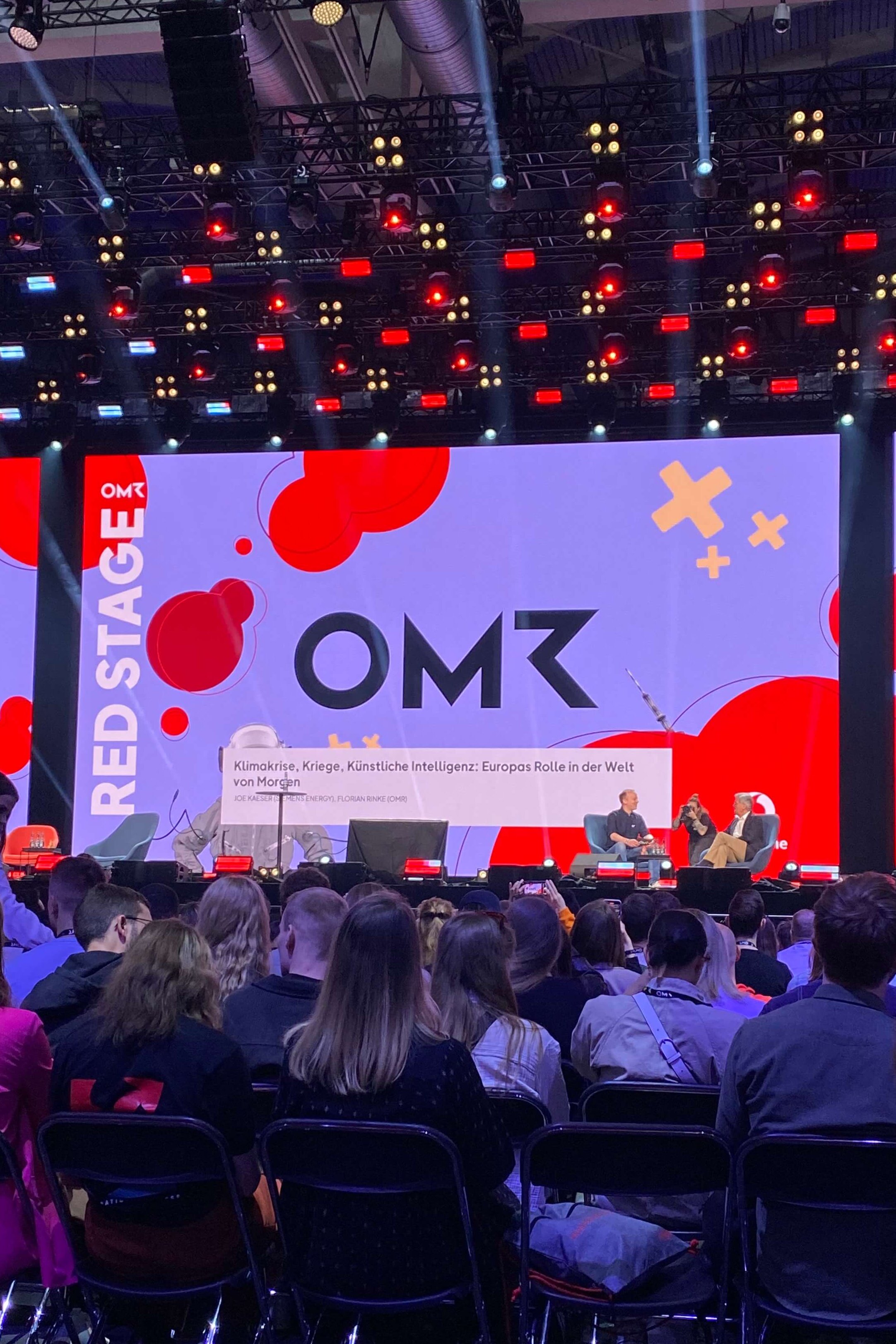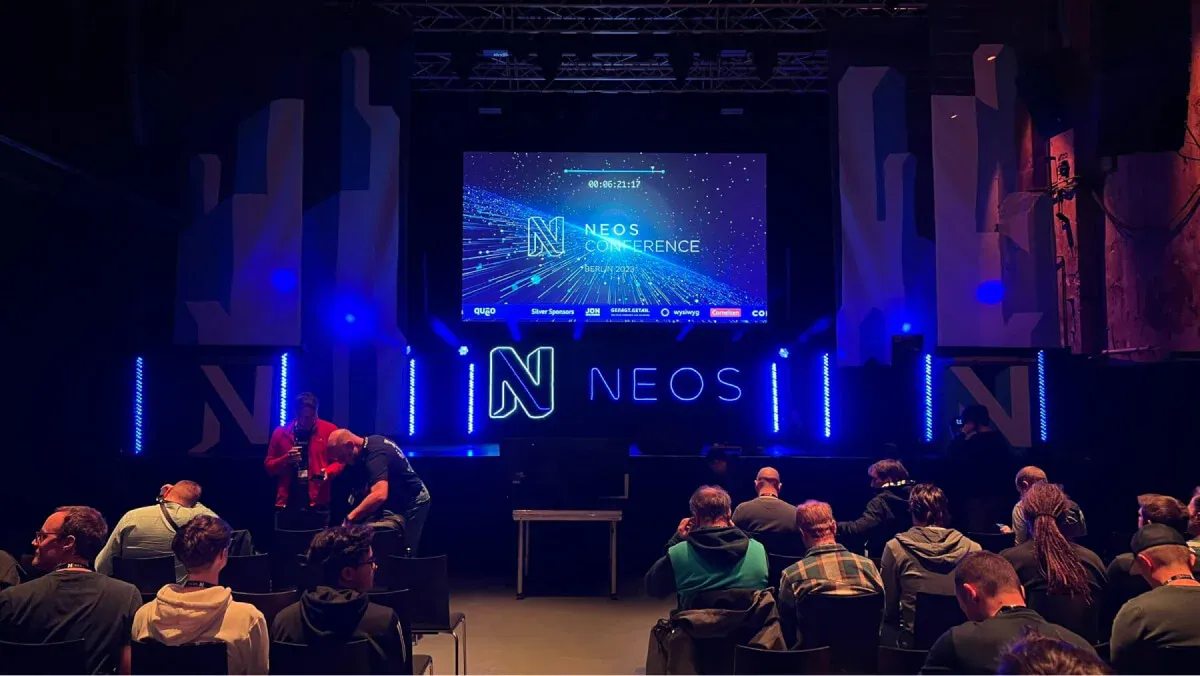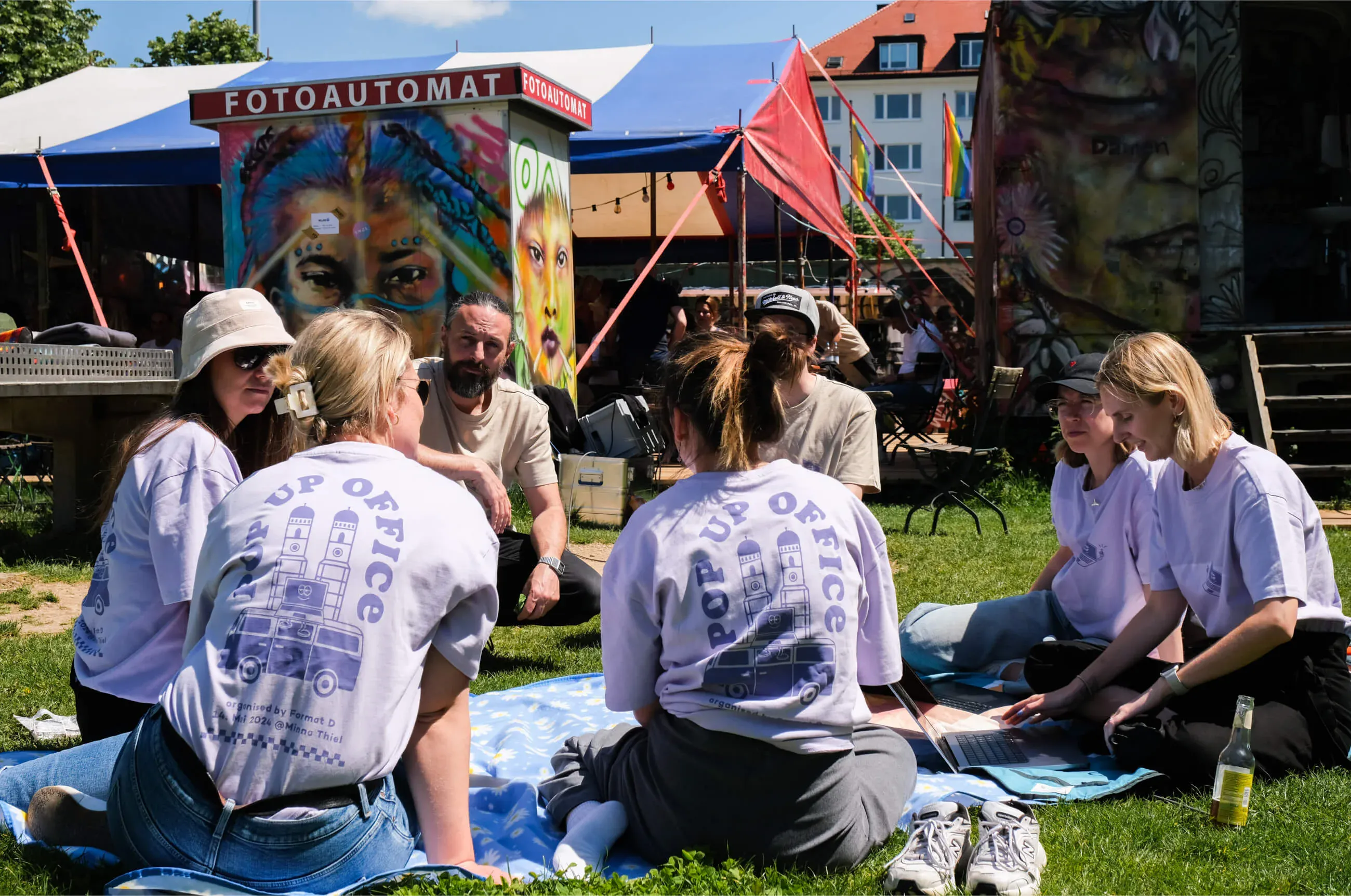OMR 2023

Summary


The AI transformation
Columnist, author and podcaster Sascha Lobo spoke about the opportunities and challenges presented by the use of artificial intelligence, among other things. In his opinion, Germany must continue to develop, especially in the technology and web sector, in order to master a successful AI transformation. He gave those present from the marketing and communications industry a clear mandate to be courageous and enable investment in this area. For example, by setting up AI departments in companies.
Markus Lanz and Richard David Precht discussed the question of how people are changing in the age of digital intelligence, emphasising the differences between humans and AI. While emotions always play a certain role in people and their decisions, an AI can only recognise feelings and react to them: Affective computing. However, both also spoke about possible risks that could arise from the increased use and expansion of AI, such as the loss of jobs and the danger of deepfakes.
Digital technologies in Europe
Like many other speakers, Hanno Renner, founder and CEO of Personio, criticised the fact that the digital technology sector still occupies too little space in the EU economy as a whole. With the establishment and expansion of European technology companies, we also have the opportunity to use these organisations to promote European values around the world and become less dependent on major powers such as the USA and China. Joe Kaeser, former CEO of Siemens, took a similar view when he spoke about EU requirements for companies, the migration of organisations to other markets and the urgent need for technical solutions to acute issues such as maintaining economic strength, safeguarding prosperity and combating climate change.
Transformation & environmental protection
Maja Göpel, economist and transformation researcher, also spoke about the importance of interference from bodies such as politicians. In her view, balancing measures that are also orientated towards the rhythm of nature are needed to maintain prosperity and security of supply in Germany. For this transformation and the underlying structural change, the economic, financial and government sectors must focus more on impact investing. This is the only way to enable action and economic activity that benefits the global goals of environmental protection.
Luisa Neubauer, one of Germany's best-known climate activists, also made a special appeal to the marketing audience. In order to really make a difference, everyone should carefully scrutinise which company and the associated values they are investing their labour and performance in. This is the only way to avoid greenwashing and to build and support a sustainable working and economic world in the long term.
For us, it was particularly nice and exciting to see how diverse the topics were and how much consensus could still be found. If you are curious, you can find some of the talks and keynotes on YouTube.


